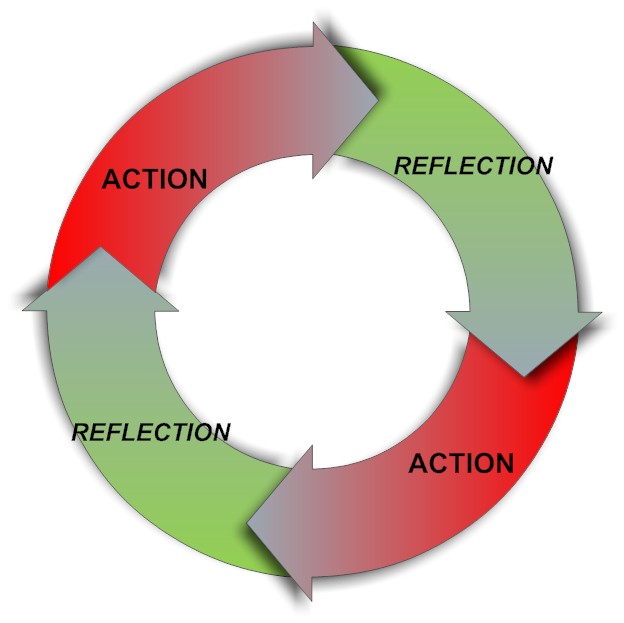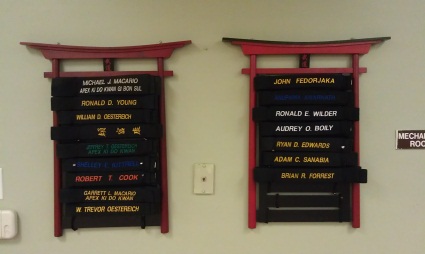The Power of Completion. . . One Elephant at a Time
For seven years, I’ve been facilitating the annual meeting of The Well Project’s Women’s Research Initiative(WRI) on HIV/AIDS. The mission of the WRI is “to promote and facilitate expedience and efficiency in research about HIV disease in women by producing a coordinated effort across disciplines and organizations”.In other words, to give rise to more, better, and faster research on women and HIV. In these annual multi-day meetings, we bring together leading experts to focus on new solutions. Over the years, we have helped initiate some very interesting and significant research efforts. We also have supported an amazing community of experts by helping them to do what they do best.
It is incredibly rewarding work.
Planning these meetings is intense – a core team of only a few people designs every aspect of the meeting. Our design philosophy is to invite an exceptional group of people, get them away from their daily routines to a retreat location, take care of all of their needs – and then apply just the right amount of creative tension. This approach produces an exceptional experience and creative outcomes.
In addition to designing and facilitating the meeting, we also commit to producing a written meeting report for distribution to participants and meeting sponsors. This report is also posted online for the public to view.
The meeting report has always been a nagging problem – until this year. In prior years, when we finished our multi-day meeting, the core team would all get on airplanes, return home or somewhere, and move on to the next thing in our lives. Even though we always had a plan to get the report done, our timelines would get extended and deadlines were missed – as everyone on the team was now working on other things. Typically in prior years, it took us several additional months to write, edit, and distribute the meeting report and action plan.
I’ve always been frustrated by the delay, feeling:
a) We were not meeting our commitments to the participants or sponsors of WRI in a timely manner;
b) People were waiting for information that could make a difference;
c) We were distracted and the report had become this big thing looming over our heads;
and finally,
d) By the time we did get reconnected to it, it wasn’t fresh anymore. Every time we would do a round of editing, the memory fog was greater. At some point, we were all just tired of it.
So this time, we were determined to do it differently.
How? By focusing on one thing at a time and getting it to completion. In this case, the meeting report.
To make this possible, we added an extra day to the meeting for the core team. Instead of flying home after the meeting, we would all stay through Monday.
After the meeting ended Sunday morning, we scheduled a high level debrief over lunch and then took the rest of the day off. On Monday morning, I got up early and drafted the meeting report – incorporating all the themes from our debrief and my notes from the previous days. By 10 a.m. Monday morning, I had a first draft which I gave to the core team to review and edit. By 1 p.m., we had a second round of edits and a plan to incorporate them into a final draft for circulation to the executive committee for review.
The result?It worked beautifully.None of us scattered off to the next thing.We took the time to digest, process and capture the key next steps.We made a commitment to publish the report within two weeks after the meeting ended.And we did.You can see it here.
When I left the WRI meeting on that Monday this year, I got on the plane and rested.After seven years ofworking these meetings, this was a first.It felt so good to be complete – no worrying about the unfinished business of the weekend all the way back home and into my work week because – it was done!
And I was not alone in this.The whole team felt great that the report was complete.We’d fulfilled our commitments and could move on to the next thing.
Our WRI tale is a microcosm of how you can regain some sanity and control around your work life.
In our “busy” world, it is so easy and tempting to have a gazillion things going on at once.But what actually gets completed?The overload of multi-tasking creates a huge energy drain on you and your organization.
The approach, as Steve Chandlerteaches, is to adopt the most powerful time management system ever:Work on one thing at a time.
Ask yourself – what do I need to do to reach completion on this task? Your answer will suggest that you do things differently. You won’t schedule calls or meetings back to back – instead, you’ll leave a buffer of time to take action before moving on to the next thing. And when you do, you’ll be done with what came before. The result: focus and completion.
As an example, I am seeing a big difference here in how some of my clients are working. Instead of scheduling a one hour session, I ask them to block off two hours. We complete our work in an hour, but afterwards, the client has time to really implement and take action on the ideas we generated. For myself, before I schedule any meeting, I ask myself what it really will take to get it done – and plan accordingly. The result – higher quality results that actually create energy through a feeling of satisfaction and completion.
p.s. The blog subtitle here?
It’s a reference to the riddle that asks “How do you get a thousand elephants through a doorway?” and gets at the futility of trying to cram a bunch of big projects through simultaneously.
The answer: See title of this blog.
p.p.s. A huge thanks to the core team – Dawn, Jenna, Debbie, Tina, Richard, & Krista for everything you do to make this amazing initiative a reality.


Ron,
We could not do this without your extraordinary commitment and strategic vision. On behalf of the team and the full WRI, thank you for helping us move elephants…(sort of like moving mountains!).
With great respect,
Dawn Averitt Bridge
Founder and Chair, The Well Project
Women’s Research Initiative on HIV/AIDS (WRI)